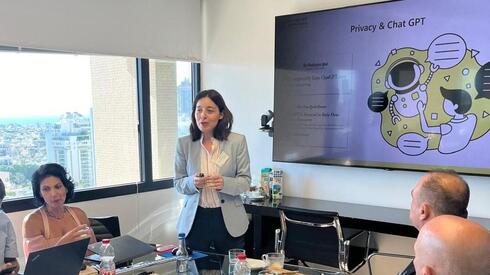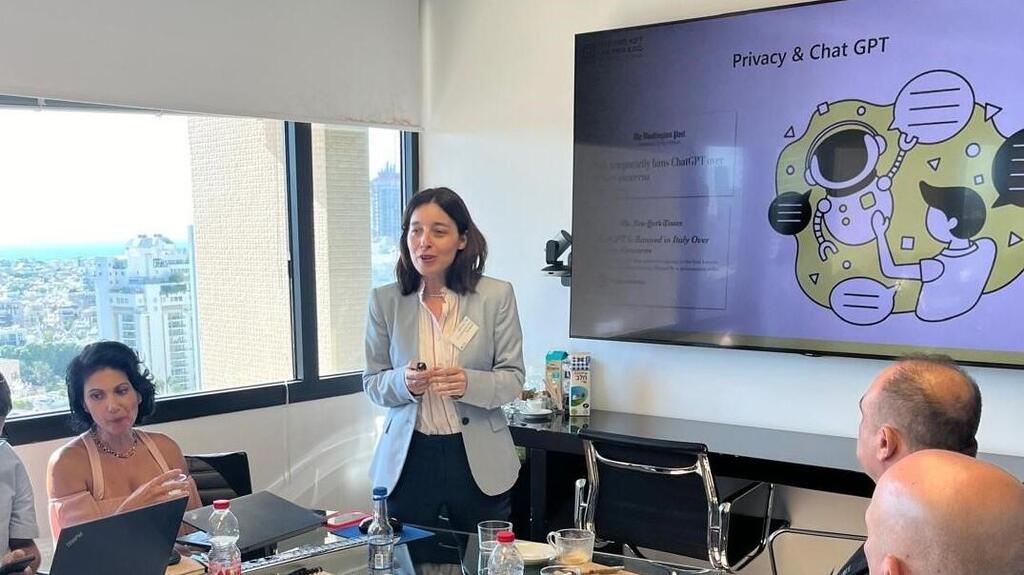
“It is becoming increasingly clear that uncontrolled use of AI could have devastating results”
Leading experts met to discuss AI regulation and risk management implications in a roundtable hosted by Israeli law firm Lipa Meir & Co.
“Even in the absence of a comprehensive AI law in Israel, the existing regulation already sets requirements for Israeli companies in the context of AI,” said Adv. Vered Zlaikha, Partner and Head of Cyber Affairs and AI Practice at Lipa Meir & Co. law firm. “For example, privacy protection and anti-discrimination laws are relevant to AI deployment and should be taken into account. “As for the EU AI ACT, it should be of interest to Israeli companies operating in the European markets. The scope of the legislation is very broad and applies, among other things, to systems that will be deployed in the EU or when the output of an AI system is used throughout the EU.”
Zlaikha made the remarks at a meeting hosted by Lipa Meir & Co. law firm, where a group of experts met to discuss AI regulation and risk management implications. “Therefore, Israeli companies dealing with AI technologies may fall within the scope of European legislation and therefore those companies, as well as investors, should consider its ramifications.”
1 View gallery


Vered Zlaikha on challenges, risk management, and regulation in the field of AI
(Photo: Dafna Ziv)
The introduction of tools like ChatGPT and Gemini has accelerated the integration of AI, evolving from exploratory phases into widespread application. However, this progression brings with it significant challenges, particularly in regulation and fraud prevention. Different jurisdictions approach this issue: the EU with comprehensive legislation, the US with innovation-focused policies, and Israel with a strategy that supports sector-specific regulation. These varied strategies aim to balance the potential of AI with the need to protect users and maintain public trust.
“Over the last year, we have seen a growing development of mandatory AI legislation through state regulation, such as in New York, in work-related aspects,” added Zlaikha. “Israeli companies should therefore be aware of these changes, and prepare for the formulation of an internal policy, based on a careful mapping of AI technology implemented in the company, while analyzing the potential risks, from a legal perspective and taking into account the applicable Israeli laws, EU laws, and US laws.”
The meeting was also accompanied by Prof. Yaniv Kanat-Maymon of Reichman University School of Psychology and a founding partner in ACUMENAI. He highlighted how AI algorithms have already started to ‘manage’ people who rely on the technology too much. “We are at the beginning of a new era in which machines will start making more and more decisions for us: 83% of companies today are engaged in the integration of AI tools, and this has huge significance in terms of the ability of these machines to influence our lives.”
According to Adv. Josef Gedalyahu, Director of AI Regulations and Ethics at the Ministry of Innovation, Science and Technology, the State of Israel is ranked seventh place in the Global AI rankings in the report of the Tortoise Media AI Index and similar rankings. These are designed to examine parameters such as human capital, infrastructure, research, development, government strategy, and commercialization. "Israel is considered a leader in parameters of human capital and AI experts as well as the transformation of knowledge from academia to industry, but there are other parameters, in which Israel is considered less strong compared with other countries.”
He revealed that the state has announced a national AI plan led by five government ministries and supported by the Ministry of Finance, at a cost of NIS 1 billion ($265 million) over five years to advance Israel in the field of AI, specifically in the areas that need to be strengthened.
"The AI arms race has been raging for several years, and if in the past the race was to obtain a technological advantage, today it is actually a properly regulated arms race,” concluded Yoav Evenstein, an international AI consultant and expert. “This is because it is becoming increasingly clear that the uncontrolled use of AI technology could have devastating results, such as, for example, racial bias created in an AI model."
Lipa Meir & Co. is one of the leading law firms in Israel, offering a range of civil, corporate, and commercial legal services. The firm operates through six key departments: Commercial Law, Litigation and Dispute Resolution, “Technology. Corporate. M&A Department”, and more.













